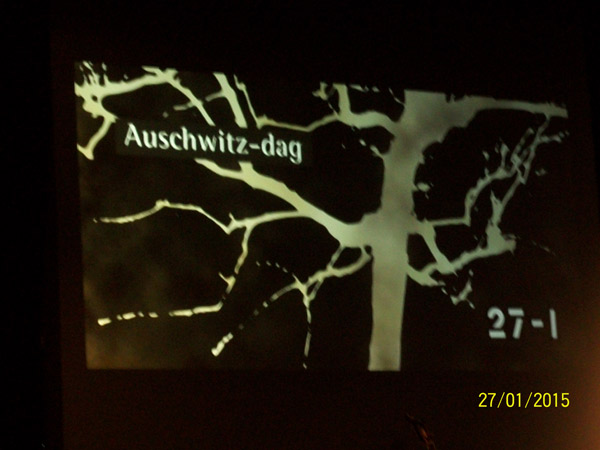On 27th of January 1945 the most terrific of German concentration camps, Auschwitz was liberated. It is often called the Death Camp as people going inside never came out. Yesterday, on 27th of January 2015 the 70th anniversary of the liberation of Auschwitz camp was marked.
In regard with the anniversary a memory day was orgniased by Copenhagen Commune. The event dedicated to the anniversary was opened by the Lord Mayor of Copenhagen Frank Jensen. Stressing that Auschwitz camp is a dark stain on the unviersal history, the Mayor also mentioned the Armenian Genocide, noting that before the Auschwitz camp, in the days of the First World War, on 24th of April 1915 Armenian Genocide took place. The event was attanded by the Ambassador of Turkey to Denmark as well as by the Ambassador of Armenia to Denmark and Norway, Hrachya Aghajanyan.
The centre of the event was the liberation of Auschwitz. The Mayor mentioned that today genocides still take place, as the one in Darfur, to which also attention should be paid.
Afterwards a speech was given by the Israeli Ambassador to Denmark, Barukh Binah. He read the fragment “Mother, Is It Allowed Now to Cry?” from the poem of notable Israeli poet Nathan Alterman. As the Mayor of Copenhagen noted, the poem is a universal story of freedom. The three-year old girl couldn’t cry because of the fear of being found by Germans and when in May 1945 the danger has passed, she asks her mother if she can cry now.
This was followed by a speech by Henrik Skov Kristensen, the Head of Danish National Museum. He presented the situation in Denmark in the last year of the Second Wolrd War. He, particularly, mentioned that Denmark was under German pressure because there were many wounded German soldiers and refugees in Denmark who were not welcomed, certainly. “There was an expectation or fear in Danish public that the liberation of Denmark will take place after a struggle on the Dniash soil”, tells Kristensen. The possible war was approaching when the miracle happened, and the Second World War was over. 11 German naval personnel were condemned and executed the night after capitulation on May 5. “The first 24 hours of liberation were the bloodiest”, noted the Head of the Museum.
This speech was followed by Isreali folk music presented by the Askakians.
After the music break a speech was given by professor Stefan Iversen and actor Jens Albinus. During their speech they presented several mentioning-worthy testimonials of Auschwitz camp survivors who have seen the whole severity of the concentration camps by their own eyes. Iversen interpreted and Albinus read them. “The details of memory are important because they give us the disturbance of what we don’t want to see. It forces us to listen. It reminds of how much freedom people can be deprived of”, mentioned Iversen.
Mentioning that genocide is not anything that just belongs to the past, the Mayor presented journalist Malene Haakansson who worked in Darfur in 2005 when genocide took place there. She read fragments from her book “Darfur: the Forgotten Genocide” where the events of Darfur genocide are described.
Afterwards Israeli music was presented by the abovementioned band after which Lord Mayor of Copenhagen gave ending remarks. “It’s a day which will awaken strong feelings and will question the condition of today’s world. We need to know how valuable our freedom is. That’s why we need to keep talking about Holocaust and genocide”, mentioned the Mayor, adding that otherwise young people will not know about it, and the history might repeat itself.
Sose Mayilyan
LL.M. student at the Faculty of Law
of the University of Copenhagen

























































